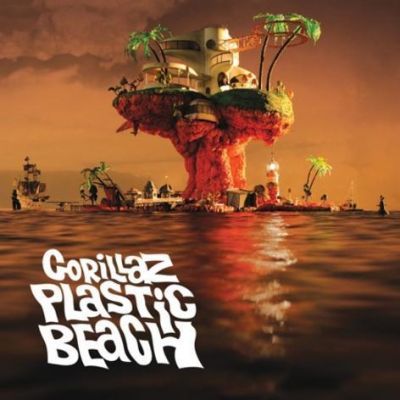Fiona Sturges: Copy or not, Gorillaz's song is inferior to Eddy's

Your support helps us to tell the story
From reproductive rights to climate change to Big Tech, The Independent is on the ground when the story is developing. Whether it's investigating the financials of Elon Musk's pro-Trump PAC or producing our latest documentary, 'The A Word', which shines a light on the American women fighting for reproductive rights, we know how important it is to parse out the facts from the messaging.
At such a critical moment in US history, we need reporters on the ground. Your donation allows us to keep sending journalists to speak to both sides of the story.
The Independent is trusted by Americans across the entire political spectrum. And unlike many other quality news outlets, we choose not to lock Americans out of our reporting and analysis with paywalls. We believe quality journalism should be available to everyone, paid for by those who can afford it.
Your support makes all the difference.There is, it has to be said, a certain similarity in the synthesised melody of "Time Warp" to that of Gorillaz's "Stylo". But singer Eddy Grant's request for full credit for the song is pushing it, since in every other respect the two tracks are very different. "Time Warp", which originally appeared in 1982 as a double-A side with Grant's No 1 hit "Electric Avenue", is a quietly mesmerising piece supported by a single, immutable disco beat that itself owes a debt to the dance-floor supremo Giorgio Moroder.
Gorillaz's song is a far more three-dimensional affair, one that takes in 70s disco, 80s synth-pop and 90s dance music, reconfiguring them for a new generation. In contrast to Grant's minimalist approach, "Stylo" has been give the bells and whistles, laden as it is with effects as well as vocal contributions from the US rapper Mos Def and R&B singer Bobby Womack.
Plagiarism has long been one of pop's thornier issues, rearing its head regularly in the era of sampling. While musicians are required to seek the permission of the original artist when sampling or utilising portions of their work (thus ensuring that the original artist gets royalties), there are inevitably times the parties in question fall out. George Harrison, Bee Gees, Nirvana, Mariah Carey and Madonna have all stood accused of profiting from other people's tunes. More recently the guitarist Joe Satriani filed a lawsuit against Coldplay, claiming that their song "Viva La Vida" ripped off his 2004 instrumental track "If I Could Fly".
Whether or not the Grant Vs Gorillaz case becomes a courtroom showdown, it's essentially a win-win situation for Grant who is suddenly a familiar name among Gorillaz's fans. And were it simply a battle to decide which song is better, few could deny that Grant wins hands-down.
Join our commenting forum
Join thought-provoking conversations, follow other Independent readers and see their replies
Comments